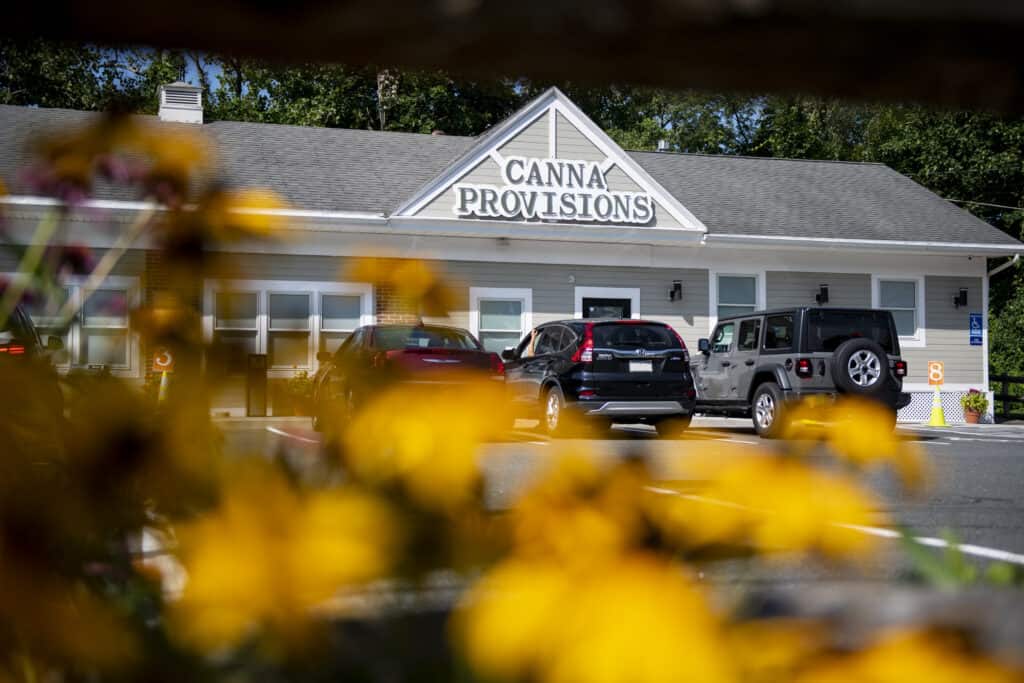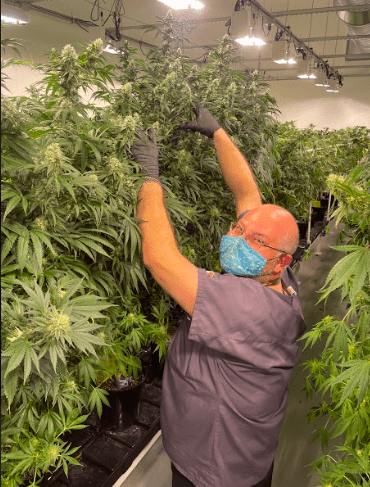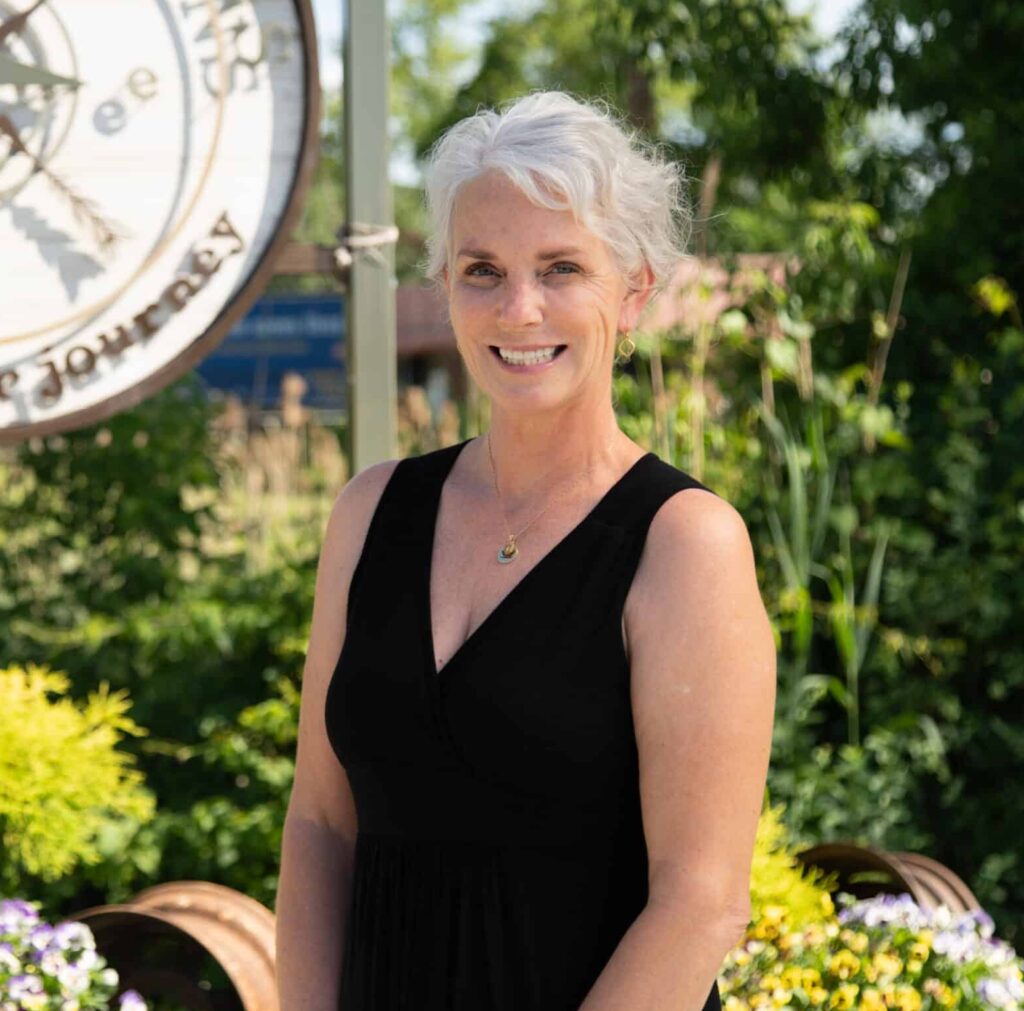Meg Sanders fights for equity in cannabis every day.
The CEO of Massachusetts-based Canna Provisions is so passionate about bringing equity to an industry dominated by white men that she’ll talk about it to anyone who will listen — and even people who don’t.
“I’ve been using my big, fat mouth to talk about a lot of things,” Sanders said. “I want to sleep at night.”
Sanders has testified in state houses and town halls across the country, advocating to end the failed drug war, allow greater access to medical cannabis, and lower barriers of entry into the industry for communities that have been left behind. Through her companies Canna Provisions and Will and Way, she does pro bono work to advise groups seeking to get into the industry through social equity.
“Meg and I have been fighting for it since before the tagline of social equity was here because it’s about the same things: fighting to lower the barriers of entry for the communities and groups traditionally left behind in America,” said Erik Williams, Sanders’s partner and co-founder, and the chief operating officer of Canna Provisions.
A Texas native who moved to Colorado in the second grade, Sanders grew up to work in compliance for a small family office that managed traders around the world. Her work navigating complicated regulatory environments gave her experience that she later applied to the cannabis industry.
In addition to her compliance background, Sanders had an entrepreneurial streak — she started Angler Baby to make fly fishing-themed apparel for infants and toddlers. The combination gave her solid footing for entering the cannabis industry in 2009, when she started MindFUL, a vertically-integrated company that serves both adult-use and medical markets. As more states legalized cannabis, she was tapped to consult with companies that wanted to set up shop. She helped with everything from finding a location to remaining compliant with state regulations.
A consulting gig landed Sanders as CEO of Canna Provisions—the company asked her and Williams to stay on and take charge of operations. Now, Sanders and Williams are in the process of expanding from two dispensaries in Massachusetts to locations in the recently legal states of New Jersey, Connecticut, and New York.


“I could go back to full-time consulting and just focus on Massachusetts and kill it,” she said. “But I’m hellbent on creating a new and improved MSO experience. What’s happened to date isn’t very exciting.”
Sanders plans to have as many as 10 cannabis stores in New York, where the Canna Provisions brand already is well known, as well as one each in Connecticut and New Jersey.

Sanders is committed to bringing her advocacy work with her and believes social equity goes beyond the background of the person operating the business.
“If you’re representing yourself as social equity and you’re carrying products that aren’t, you’re not social equity,” Sanders said.
Canna Provisions doesn’t carry products exclusively from social equity brands because there aren’t enough of them, but it does strive to stock its shelves with products from women-led, social-equity, and veteran-led cannabis partners.
“As of right now, we are working with onboarding a social equity delivery company in Massachusetts, social equity applicants in New York, New Jersey and Connecticut and a social equity group of New York hemp farmers as well,” Williams said. “Most importantly for us, it’s about who we don’t partner with on this front. Specifically, we don’t support social equity operators who partner with industry executives and other operators who have a record of actively fighting against social equity in the name of their own shareholders and profit margins.”
Canna Provisions worked with the Massachusetts Social Equity Program to get Greg “Chemdog” Krazanowski, now the company’s director of cultivation, fully badged as a legal cannabis grower ten years after the state arrested him and seized his assets. Canna Provisions then launched Krazanowski’s first legally-grown small-batch cannabis in April 2020 with its Smash Hits brand.


The company also supports restorative social justice programs that work to rectify the impact of the War on Drugs. It partnered with The Last Prisoner Project on its Roll It Up for Justice program, which encourages customers to donate to the organization on checkout.
But Sanders knows that creating a truly equitable industry will require lowering the bar of entry.
In Massachusetts, for example, a dispensary has to be completely built out and stocked before the state will issue a license — a system that prevents many social equity applicants from participating in the industry.
“It keeps small operators, women and social equity applicants with drug convictions out so the rich white guys can continue to prosper,” she said. “We need to create a system where we can get the right people with licenses in hand and do a transfer of wealth.”
Williams is on the same page and wants to help bring more people to the table. “Don’t let rich, white male legislators make all the rules about social equity,” he said. “Why? Because they are voting to keep out the very communities and groups social equity is supposed to support. Massachusetts got it wrong. Connecticut is getting it wrong – a social equity lottery is gross in so many ways. We’ll see if New York does it right, but it’s worth noting that Massachusetts did not include women in social equity. New York did.”
Speaking of bringing more people to the table, Sanders was originally attracted to the cannabis industry because of the different kinds of people she gets to interact with. There’s Wana Brands’ CEO Nancy Whiteman, Cannabis Trainers’ Founder and Chief Facilitator Maureen McNamara, and Ricardo Baca, founder and CEO of the Denver-based public relations and marketing firm Grasslands, just to name a few.
“I think it continues to bring interesting people to the space,” Sanders said. “But there’s still a 10-to-1 ratio of assholes to good people — when money is involved, it brings another type of person.”
That said, Sanders is excited about innovation in the cannabis industry as growers develop new strains and brands create new products. In Massachusetts, she’s seeing more baked goods and is witnessing an explosion of seltzers and sodas.
And there’s no telling what the future holds.
“The best thing in cannabis has not even been invented yet,” she said.






1 thought on “Meg Sanders of Canna Provisions on building a stronger industry and a better MSO experience”
Pingback: How independent retailers can compete with MSOs - MJ Brand Insights